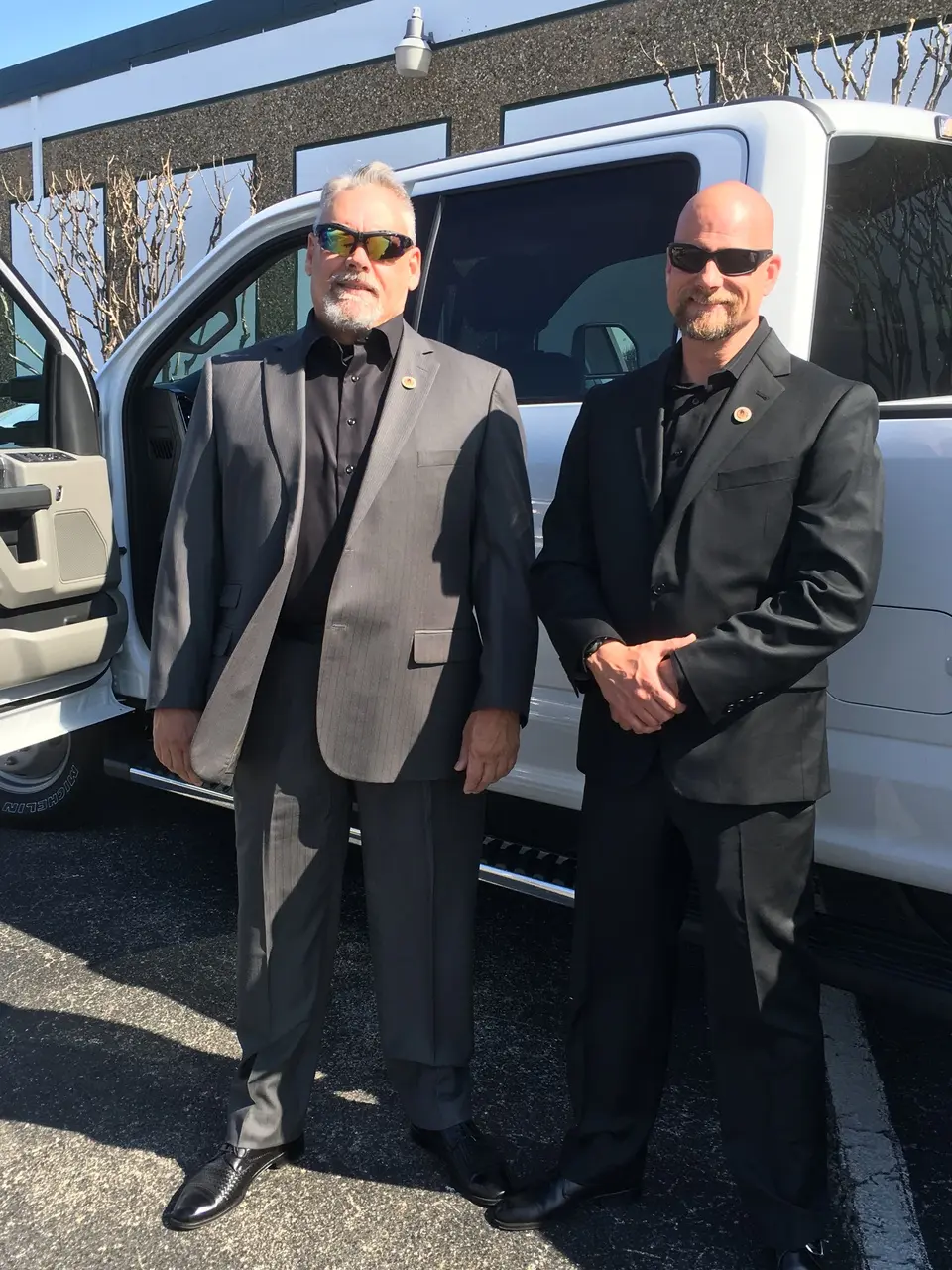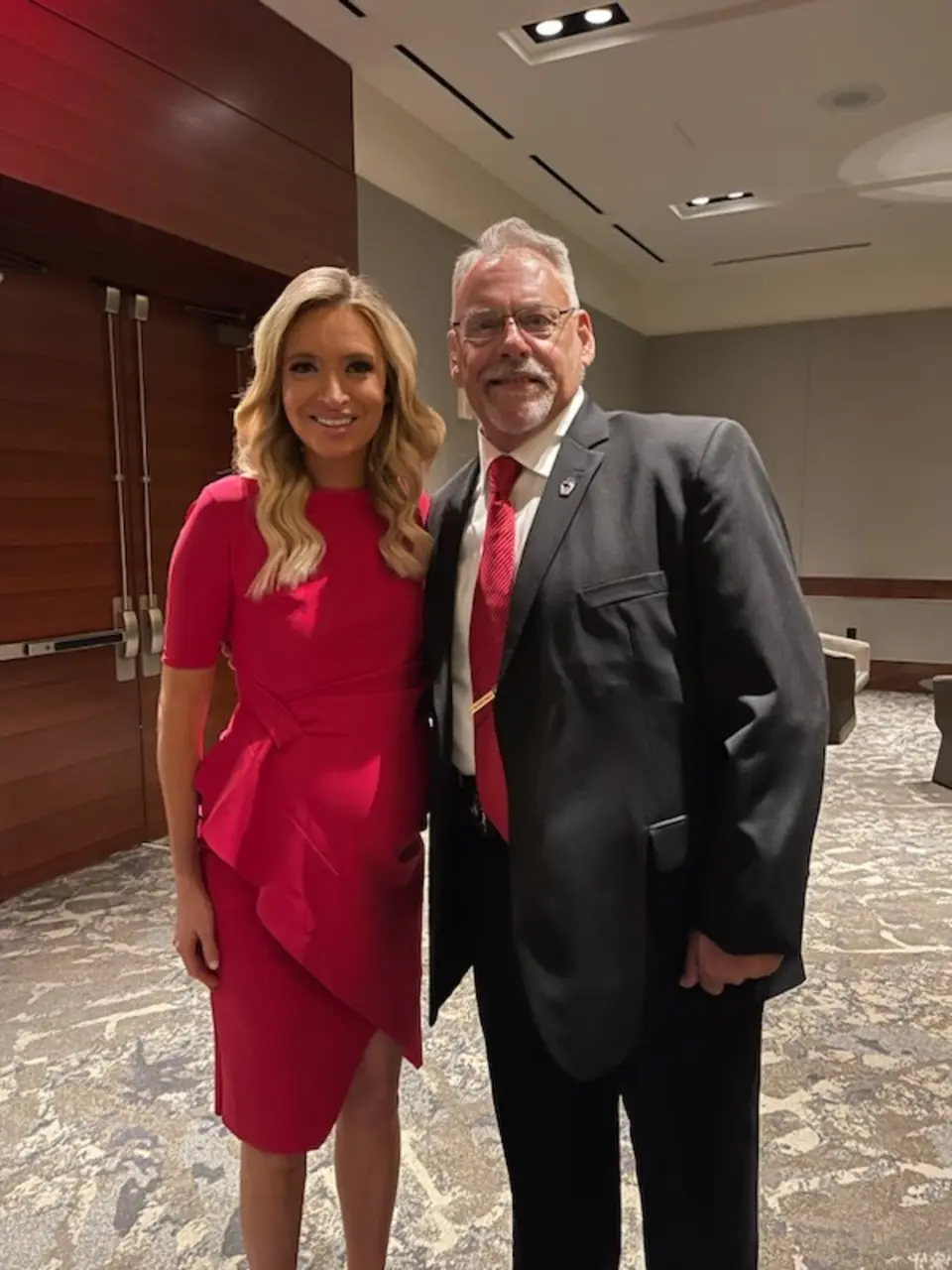In the realm of security services, providing Executive Protection is a paramount responsibility. The role of an Executive Protection specialist is to establish and maintain a safe working environment for the Principal while effectively minimizing potential risks. This entails a multifaceted approach involving strategic planning, brand alignment, and a deep understanding of the target audience. By employing various techniques, a content generation specialist can create engaging and impactful content that resonates with the readers.
Who is This "Principal"
This is a word you'll hear a lot when doing executive protection. The "Principal" refers to the individual or entity who is being protected by the executive protection operatives. It can vary depending on the specific context and can include high-profile individuals, corporate executives, dignitaries, celebrities, or any other person or organization that requires specialized security and protection services. The Principal is the central focus of the executive protection efforts, and the operatives work diligently to ensure their safety and well-being.
Objectives of Executive Protection
Executive Protection entails four main objectives that guide the efforts to maintain the safety and security of the Principal. These objectives revolve around preventing unintentional injury, avoiding embarrassing situations, deterring intentional attacks, and ensuring the smooth running of any occasion involving the Principal.
Preventing Unintentional Injury
The first objective of Executive Protection is to prevent unintentional injuries. This involves implementing measures to minimize the risk of accidents and medical emergencies. By addressing factors such as vehicle accidents, random accidents, and existing medical conditions, the aim is to create a safe working environment for the Principal.
Avoiding Embarrassing Situations
Another critical objective of Executive Protection is to prevent embarrassing situations. This entails exercising control over media interactions, managing public situations, and safeguarding the privacy and family matters of the Principal. By employing effective strategies, Executive Protection specialists can protect the reputation and image of the Principal in various scenarios.
Deterring Intentional Attacks
Deterring intentional attacks is a crucial objective of Executive Protection. This includes addressing potential criminal threats, fortifying security measures to counter random attacks or organized assaults, and devising strategies to mitigate the risk of kidnapping. By diligently assessing potential threats, Executive Protection specialists can effectively safeguard the Principal from harm.
Ensuring the Smooth Running of Occasions
The final objective of Executive Protection is to ensure the smooth running of any occasion involving the Principal. This encompasses meticulous event management, coordination with relevant stakeholders, and anticipating and addressing any logistical issues that may arise. By overseeing the seamless execution of events, Executive Protection specialists contribute to the overall success and safety of the occasion.
By focusing on these objectives, Executive Protection specialists and content generation specialists can work hand in hand to craft informative and compelling content that emphasizes the importance of these objectives and creates awareness about the significance of Executive Protection services.
Personal Hygiene and Behavior
Maintaining proper personal hygiene and behavior is of utmost importance for executive protection operatives. It not only contributes to their professional image but also helps in establishing a sense of trust and credibility. Here are some key considerations for personal hygiene and behavior:
Hygiene for Executive Protection
- Cleanliness: Executives protection operatives should prioritize cleanliness and ensure they maintain a neat and tidy appearance at all times.
- Well-groomed: Attention to personal grooming is essential. Operatives should present themselves with well-maintained hair, trimmed nails, and a generally well-kept appearance.
- Avoiding strong smells: To maintain professionalism, it is important to avoid strong smells, including excessive use of aftershaves or perfumes. Additionally, be mindful of not carrying the smell of smoke on clothes while on duty.
- No chewing gum: Avoid chewing gum while on duty as it can be distracting and appear unprofessional.
Dress and Conduct
As representatives of Executive Protection, operatives must adhere to the appropriate dress code and conduct themselves in a manner that reflects professionalism and reliability. Consider the following factors when it comes to dress and conduct:
- Presentation: Executives protection operatives should always strive to present a clean and polished appearance. This includes well-fitted clothing and appropriate grooming.
- Consider the environment: When choosing attire, it is vital to consider the environment in which the protection services are being provided. Tailor the dress code accordingly to align with the expectations of the specific setting.
- Principal / Entourage: The clothing choices should be in alignment with the Principal and their entourage's expectations and preferences.
- The Itinerary: Encompassing the nature and schedule of the engagement in consideration when establishing the appropriate attire.
- Covert or Overt: Depending on whether the protection services are covert or overt, operatives may adjust their dress and conduct accordingly to blend in or maintain a visible presence.
Investing in a well-fitting suit is advisable, with a focus on the shoulders for off-the-rack purchases. Consider a charcoal or grey suit, unless evening wear is required. Trousers should adequately cover the tops of the shoes and parts of the laces. Depending on requirements, take into account the need for weapons or communications equipment.
A white shirt is a safe choice, and it is wise to keep a spare within reach. Ensure the sleeve cuffs are exposed approximately half an inch, and the tie should be slightly darker than the shirt, reaching the waistband of the trousers. Wearing a belt that matches the color of the shoes is essential. If additional equipment needs to be carried, opt for dark-colored bracers.
Executive protection operatives should maintain a diverse selection of clothing for different occasions. This includes specialist attire like tuxedos, business casual outfits without ties, smart casual ensembles with trousers, shirts, and jumpers, as well as casual options such as smart jeans, polo shirts, and trainers or shoes. Additionally, physical training kit or overalls might be necessary for specific tasks or situations.
Operatives should also be prepared to adapt their dress to match the occasion and blend into the environment when required. This may entail mirroring the dress code of the Principal or adjusting the attire to suit the location and surroundings.
By emphasizing personal hygiene and adhering to appropriate dress and conduct, executive protection operatives can maintain a professional and trustworthy image while effectively carrying out their duties. The attention to personal presentation and behavior helps instill confidence in the Principal and reinforces the assurance of a reliable protective presence.


Dress and Conduct
Maintaining a professional image is essential for executive protection operatives as it not only reflects their competency but also contributes to the overall perception of the services being provided. When it comes to dress and conduct, several key factors should be taken into account.
Presentation
To present a professional image, executive protection operatives should pay attention to their appearance and attire. Here are some considerations for achieving a polished presentation:
- Suit Selection: Investing in a well-fitting suit is crucial. When purchasing an off-the-rack suit, ensure the shoulders fit correctly, as they are a critical factor in jacket appearance.
- Color Choice: Opt for a charcoal or grey suit, as they are versatile options that can be suitable for various occasions. However, for evening events, a black suit may be more appropriate.
- Trousers Length: The trousers should cover the top of the shoes and parts of the laces for a clean and tailored look.
- Additional Equipment: Depending on the specific requirements of the position, the selection of attire should consider the need for carrying weapons or communications equipment.
Dressing for Success
To project professionalism, certain guidelines can be followed when choosing clothing for executive protection operatives:
- White Shirt: A white shirt is a classic choice that exudes elegance and sophistication. It is recommended to keep a spare shirt accessible for unexpected circumstances.
- Cuff Exposure: The sleeve cuffs of the shirt should be exposed approximately half an inch when wearing a suit jacket. This subtle detail adds a touch of refinement to the overall look.
- Tie Selection: The tie should be darker than the shirt and should reach the waistband of the trousers or be slightly shorter. This ensures a well-proportioned and balanced appearance.
- Belt and Bracers: Always wear a belt that matches the color of the shoes. In situations where additional equipment needs to be carried, opt for dark-colored bracers to maintain a streamlined and professional look.
Attire for Different Occasions
Executive protection operatives should have a varied wardrobe to adapt to different occasions and dress codes. Considerations for attire diversity include:
- Specialist Attire: For formal events or black-tie occasions, a tuxedo is the appropriate choice. This attire reflects elegance and ensures operatives blend seamlessly into the formal setting.
- Business Casual: In situations that require a smart dress code without a tie, operatives should choose an ensemble that exudes professionalism while embracing a more relaxed approach.
- Smart Casual: Smart casual outfits, such as trousers, shirts, and jumpers, strike a balance between professionalism and comfort. This attire is suitable for less formal occasions that still demand a polished appearance.
- Casual Attire: Smart jeans paired with a shirt or polo shirt, along with trainers or shoes, form a suitable casual outfit. This dress code is appropriate for occasions that have a more relaxed ambiance.
- Overalls: For specialized tasks such as searching vehicles or venues, operatives may need to wear overalls to ensure personal safety and maintain a practical approach.
By adhering to these guidelines, executive protection operatives can create a professional and trustworthy impression. A well-selected and properly fitted wardrobe, combined with appropriate attire for different occasions, allows operatives to adapt and excel while representing the principles of executive protection.
Interpersonal Skills
Interpersonal skills play a crucial role in the success of executive protection operatives. Effective communication, active listening, negotiation, problem-solving, decision-making, assertiveness, and etiquette are key skills that contribute to maintaining professional relationships and ensuring the overall effectiveness of executive protection services.
Communication Skills
Clear and effective communication is paramount for executive protection operatives to convey information, instructions, and updates to various stakeholders. This includes the Principal, their family members, colleagues, and members of the public. Key elements of effective communication include:
- Verbal Communication: Executives protection operatives should communicate articulately and confidently, adapting their communication style to suit the situation and the individuals involved.
- Non-Verbal Communication: Paying attention to body language, facial expressions, and gestures allows operatives to convey messages and intentions effectively.
- Active Listening: Actively listening and providing appropriate feedback through verbal and non-verbal cues help operatives understand the needs and concerns of the Principal and respond accordingly.
- Clarity and Conciseness: Communicating information clearly and concisely ensures that messages are easily understood and reduces the likelihood of miscommunication.
Negotiation Skills
As executive protection operatives often work in dynamic environments, negotiation skills are crucial for managing various situations effectively. Negotiation skills can be employed in a variety of scenarios, including interacting with the Principal, managing conflicts, and resolving issues with external parties. Key aspects of negotiation skills include:
- Problem Identification: Identifying the underlying issues or concerns is essential for effective negotiations.
- Mutual Benefit: Finding solutions that are mutually beneficial for all parties involved.
- Effective Communication: Employing active listening, empathy, and persuasive communication techniques when engaging in negotiations.
- Conflict Resolution: Effectively managing conflicts and reaching resolutions that promote peace and maintain positive relationships.
Problem-Solving and Decision-Making
Executive protection operatives encounter various challenges and unexpected situations. Strong problem-solving and decision-making abilities are vital to navigate these complexities effectively. Key aspects of problem-solving and decision-making include:
- Analytical Thinking: Applying critical thinking to assess situations, identify problems, and explore possible solutions.
- Prioritization: Determining the order of importance for addressing multiple issues or tasks.
- Collaboration: Seeking input from relevant individuals and departments to enhance problem-solving and decision-making processes.
- Adaptability: Being flexible and open-minded in evaluating alternative solutions and adjusting strategies based on changing circumstances.
Assertiveness and Etiquette
Maintaining a professional and assertive demeanor is essential for executive protection operatives when dealing with various individuals and situations. These skills contribute to effective communication, maintaining boundaries, and ensuring compliance with established protocols. Key aspects of assertiveness and etiquette include:
- Confidence: Demonstrating self-assurance and assertiveness in a professional manner.
- Respectful Conduct: Interacting with others in a polite and respectful manner, considering cultural differences and individual sensitivities.
- Boundary Setting: Establishing and maintaining appropriate personal and professional boundaries while ensuring the Principal's safety and security.
By developing and honing these interpersonal skills, executive protection operatives can ensure effective communication, manage conflicts, make informed decisions, and maintain professionalism in their interactions, all of which contribute to the overall success of executive protection services.
Honesty, Integrity, and Confidentiality: Essential Executive Protection Skills
Honesty, integrity, and confidentiality are foundational principles that executive protection operatives must adhere to. These principles form the basis of trust and professionalism, ensuring the highest standards of ethical conduct in their role. Here's an overview of the key considerations in relation to honesty, integrity, and confidentiality:
Trust and Responsibility
As executive protection operatives, a significant level of trust is placed upon them. They are entrusted with the security and well-being of the Principal, as well as sensitive information and access to restricted areas. Upholding trust involves:
- Access Control: Adhering to security protocols and ensuring access to restricted areas and sensitive information is limited to authorized personnel only.
- Key Management: Responsibility for safeguarding keys that grant access to various locations and ensuring they are used appropriately and securely.
- Confidentiality: Maintaining strict confidentiality regarding the Principal's personal and professional affairs, as well as any sensitive information acquired during the course of duty.
Ethical Conduct
Demonstrating ethical conduct is crucial for executive protection operatives to establish and maintain a professional reputation. This entails:
- Adherence to Legal Requirements: Complying with all relevant laws, regulations, and industry standards governing executive protection services.
- Non-Disclosure: Safeguarding the privacy and confidentiality of the Principal and refraining from sharing any privileged information without proper authorization.
- Conflict of Interest: Avoiding situations that may create conflicts of interest or compromise professional judgment and loyalty to the Principal.
Maintaining Confidentiality
Confidentiality is a cornerstone of executive protection services, ensuring the sensitive information encountered during assignments remains secure. Operatives must:
- Data Security: Implementing measures to protect digital and physical records, ensuring confidential information is stored securely and cannot be accessed by unauthorized persons.
- Competitor Awareness: Being conscientious about the sensitivity of information that could potentially benefit competitors and taking necessary precautions to prevent any unauthorized disclosure.
- Discretion in Communication: Communicating with colleagues, stakeholders, and the public in a manner that respects the confidentiality of information and the privacy of the Principal.
Honesty, integrity, and confidentiality are fundamental values that executive protection operatives must uphold. Establishing trust, maintaining ethical conduct, and safeguarding the confidentiality of the Principal and sensitive information are integral to providing effective and reliable executive protection services. By embodying these principles, operatives contribute to the overall success and reputation of the profession.


Diplomacy
Diplomacy is a critical skill for executive protection operatives as they represent not only the Principal but also the profession as a whole. Effectively navigating sensitive situations with diplomacy helps maintain a positive image and fosters fruitful relationships. Here are key considerations when it comes to diplomacy:
Professional Representation
Executive protection operatives act as representatives of the Principal and the profession, and their conduct should reflect the highest standards of professionalism. To uphold a professional image:
- Professional Demeanor: Maintain a calm and composed demeanor, especially when faced with challenging situations. This projects confidence and command.
- Adherence to Protocols: Follow established protocols and procedures, as they serve as a framework for professional behavior and expectations.
- Respectful Interactions: Treat all individuals with courtesy, respect cultural differences, and adopt an approachable attitude while maintaining appropriate boundaries.
Media Engagements
Diplomacy is of utmost importance in media engagements, as executive protection operatives may often face inquiries or interactions with the media. To navigate these situations effectively:
- Media Training: Receive adequate media training to handle interviews, press conferences, or media interactions professionally and effectively.
- Maintaining Composure: Remain composed and composed when responding to media inquiries, ensuring that all responses align with the Principal's messaging and protect their interests.
- Avoidance of Speculation: Refrain from providing speculative or unauthorized information, instead focusing on accurate and approved messaging.
Adaptability
Adaptability is a key component of diplomacy for executive protection operatives, who must be prepared to embrace and respond to unforeseen circumstances or last-minute changes. This involves:
- Flexible Planning: Be prepared to modify plans or strategies to accommodate evolving situations while ensuring the Principal's safety.
- Crisis Management: Demonstrate resilience and composure in times of crisis, making quick and calculated decisions to maintain control of the situation.
- Last-Minute Changes: Respond effectively to sudden changes in the Principal's itinerary or requirements, adjusting security measures, and coordinating resources as necessary.
Diplomacy is a vital skill for executive protection operatives as it facilitates the maintenance of positive relationships, professional representation, and effective crisis management. By adhering to protocols, interacting diplomatically with the media, and demonstrating adaptability, operatives can navigate diverse situations while upholding the professionalism and integrity of the profession.
Executive Protection Requires Adaptability
Adaptability is key for executive protection operatives as they navigate dynamic environments and respond to evolving circumstances. Being able to quickly adjust and make informed decisions is vital for ensuring the safety and security of the Principal. Here are important considerations when it comes to adaptability:
Flexibility in Planning
Executive protection operatives must possess the ability to exhibit flexibility in their planning and execution. This involves:
- Dynamic Risk Assessment: Continuously assessing potential risks and adapting security plans accordingly to address emerging threats.
- Situational Awareness: Maintaining a high level of awareness of the surroundings and being responsive to changes or indicators of potential risks or vulnerabilities.
- Alternative Strategies: Developing contingency plans to swiftly respond to unexpected events or challenges, ensuring a proactive and adaptive approach to security.
Crisis Response
In times of crisis, adaptability is crucial for effective response and resolution. Executive protection operatives should demonstrate:
- Calm and Composed Approach: Maintaining composure and clear thinking in high-pressure situations, enabling them to make sound decisions to mitigate the impact of a crisis.
- Quick Decision-Making: Assessing information rapidly, considering all available options, and making informed decisions in a timely manner is essential for crisis resolution.
- Resource Coordination: Effectively and efficiently coordinating resources, both internal and external, to respond to and manage crises effectively.
Last-Minute Changes
Executive protection operatives must be prepared to handle unexpected changes to the Principal's itinerary or security requirements. This involves:
- Flexible Scheduling: Being able to adapt schedules and logistics to accommodate unforeseen circumstances or the changing needs of the Principal.
- Rapid Adjustments: Making swift adjustments to security measures, protocols, and resource allocation based on updated information or last-minute changes.
- Effective Communication: Communicating changes and updated plans to relevant stakeholders, ensuring seamless coordination among team members and external parties.
In the dynamic field of executive protection, adaptability is an indispensable quality. By exhibiting flexibility in planning, adept crisis response, and the ability to accommodate last-minute changes, executive protection operatives ensure the safety, security, and well-being of the Principal. Embracing an adaptable mindset helps navigate evolving situations while maintaining the highest standards of protection.
Conclusion
Can you master the art of providing executive protection services? Do you possess the skills and attributes required, from personal hygiene to professional conduct and interpersonal skills? Can you uphold the principles of honesty, integrity, and confidentiality, earning the trust of the Principal and stakeholders? Are you adaptable, capable of navigating unpredictable circumstances and demonstrating diplomatic prowess?
Consider these questions as you reflect on your own abilities. Do you have what it takes to live up to the ideal of an exceptional executive protection operative? Your commitment to professionalism and dedication will determine the impact you can make on the safety, security, and well-being of the Principal. Are you ready to deliver exemplary executive protection services and uphold the reputation of the profession? The choice is yours.
Executive Protection involves establishing a safe working environment and minimizing risks for the Principal by preventing unintentional injuries and intentional attacks. Personal hygiene is crucial for maintaining a professional image, instilling trust, and representing the Principal and the profession with integrity. When choosing attire, operatives should consider factors like the Principal's preferences, the environment, the itinerary, and whether it's a covert or overt operation. Adaptability allows operatives to respond swiftly to last-minute changes, address evolving situations, and ensure the safety and security of the Principal. Effective communication, active listening, negotiation, problem-solving, decision-making, assertiveness, and etiquette are essential interpersonal skills for executive protection operatives. Upholding these values establishes trust with the Principal, ensures ethical conduct, and safeguards sensitive information vital to the client's security. Diplomacy helps operatives maintain positive relationships, handle media interactions professionally, and adapt to changing circumstances with finesse. Being adaptable means being flexible in planning, effectively responding to crises, and accommodating last-minute changes to the Principal's itinerary or requirements. Operatives should implement data security measures, exercise discretion in communication, and adhere to strict confidentiality protocols. Operatives can balance professionalism and personal safety through thoughtful attire choices, boundary setting, and maintaining situational awareness in dynamic environments.Frequently Asked Questions:
What is Executive Protection?
Why is personal hygiene important for executive protection operatives?
What should executive protection operatives consider when choosing attire?
How can adaptability benefit executive protection operatives?
What are some key interpersonal skills required in executive protection?
Why is honesty, integrity, and confidentiality important in executive protection?
How does diplomacy play a role in executive protection?
What does it mean to be adaptable in the context of executive protection services?
What precautions should executive protection operatives take to maintain confidentiality?
How can executive protection operatives balance professionalism and personal safety?